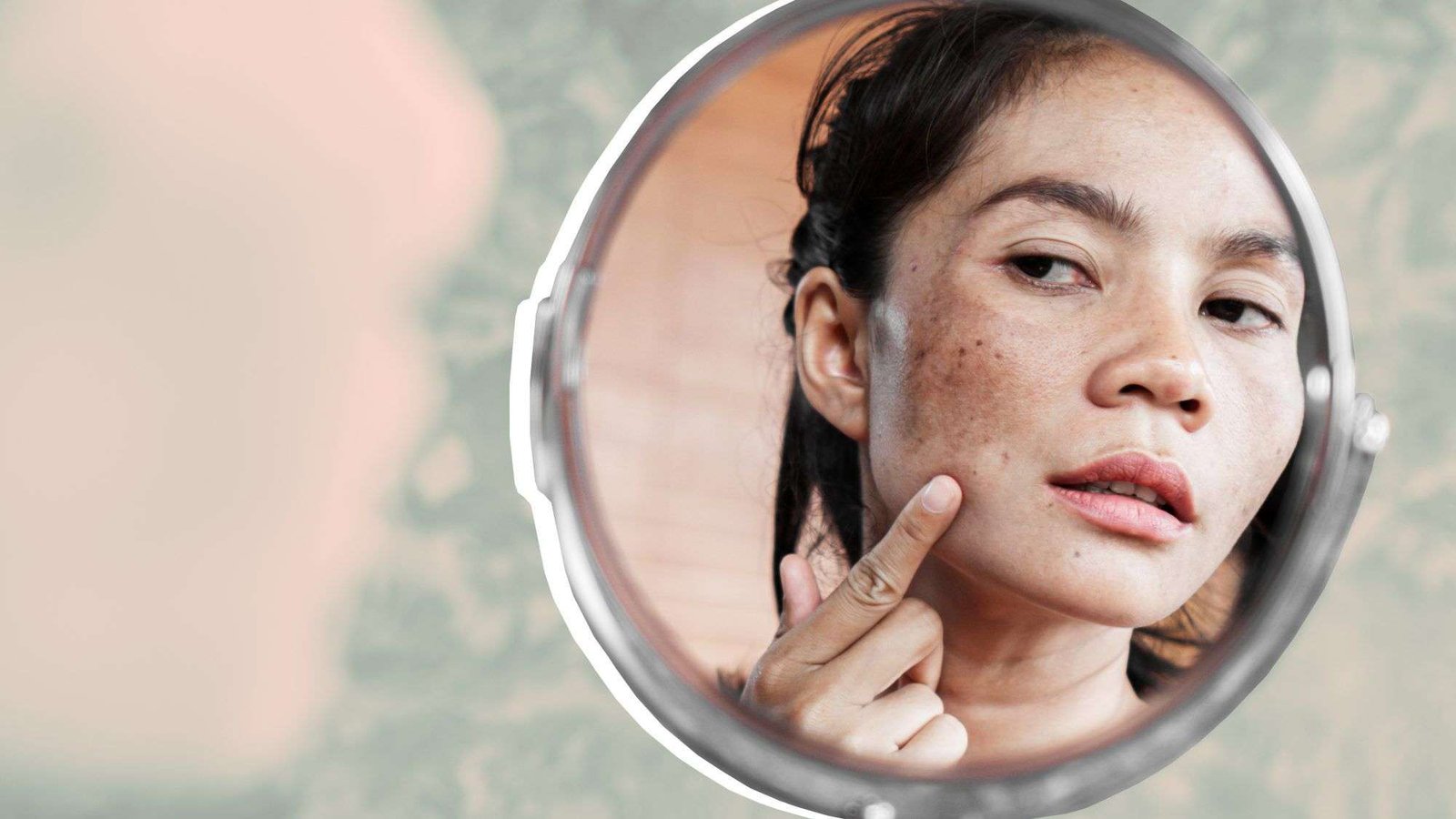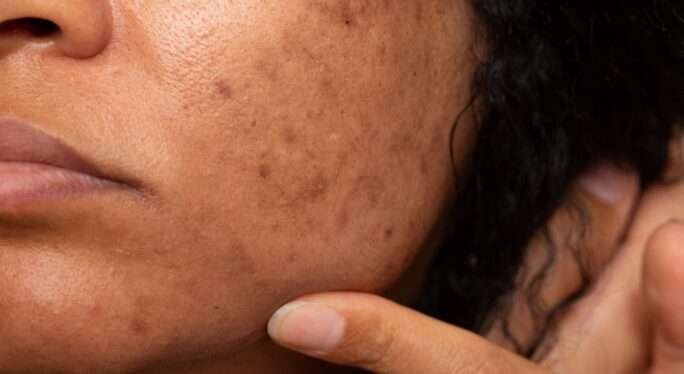
Dark spots, also known as hyperpigmentation, are one of the most common skin concerns faced by people of all ages. They appear as flat, darker patches on the skin, often due to excess melanin production. While they are usually harmless, many people want to get rid of them for cosmetic reasons. Understanding dark spots on face—their causes, symptoms, and treatment options—can help you achieve clearer, healthier skin.
What Are Dark Spots?
Dark spots are areas of skin that become darker than the surrounding skin tone. This occurs when melanin (the pigment that gives skin its color) is overproduced. They can develop anywhere on the body but are most common on the face, neck, hands, and arms.
Common Causes of Dark Spots
- Sun Exposure – UV rays trigger melanin production, leading to sunspots or age spots.
- Aging – Skin naturally develops age-related pigmentation over time.
- Hormonal Changes – Pregnancy, birth control pills, or hormonal imbalances can cause melasma.
- Acne Marks – Post-inflammatory hyperpigmentation from pimples often leaves black marks on the face.
- Skin Injuries – Burns, cuts, or insect bites may heal with darker skin patches.
- Certain Medications – Some antibiotics, chemotherapy drugs, and anti-seizure medicines can cause pigmentation.
Symptoms of Dark Spots
- Brown, black, or gray patches on the skin
- Spots are usually flat and painless
- May appear in clusters or as isolated marks
- Uneven skin tone

Risk Factors
- Fair to medium skin tone
- Frequent sun exposure without sunscreen
- Family history of hyperpigmentation
- Skin inflammation or injury
How to Prevent Dark Spots
- Always apply a broad-spectrum sunscreen before going outdoors.
- Avoid excessive sun exposure, especially between 10 AM – 4 PM.
- Treat acne early to prevent post-acne marks.
- Follow a healthy skin-care routine with gentle cleansing and moisturizing.
Treatment Options for Dark Spots
1. Home Remedies
- Lemon juice – Natural bleaching properties (use with caution on sensitive skin).
- Aloe vera gel – Soothes skin and lightens pigmentation.
- Potato juice – Contains enzymes that help fade marks.
2. Ayurvedic Remedies
Ayurveda uses herbs like turmeric, manjistha, and sandalwood to reduce pigmentation naturally and improve skin glow.
3. Medical Treatments
- Topical creams – Containing Vitamin C, retinoids, or hydroquinone.
- Chemical peels – Exfoliate skin to lighten spots.
- Laser therapy – Targets melanin deposits for even skin tone.
When to See a Doctor
If a dark spot changes in size, color, or texture, or starts bleeding, it’s important to consult a dermatologist to rule out skin cancer or other serious conditions.
Vedic Upchar Consultation for Dark Spots
If you are struggling with dark spots on your face or body and want natural, side-effect-free treatment, you can get a personalized Ayurvedic consultation from Vedic Upchar. Our experts recommend herbal remedies and lifestyle changes tailored to your skin type.
📌 Get your consultation here: Vedic Upchar Consultation